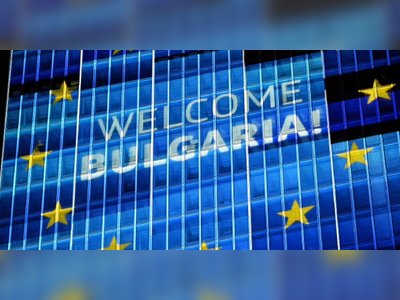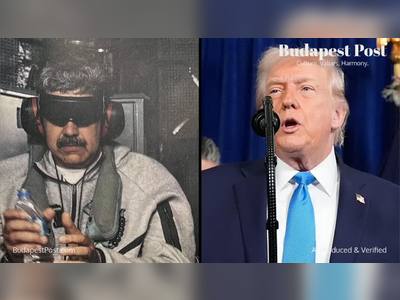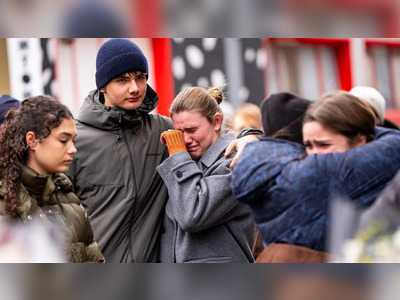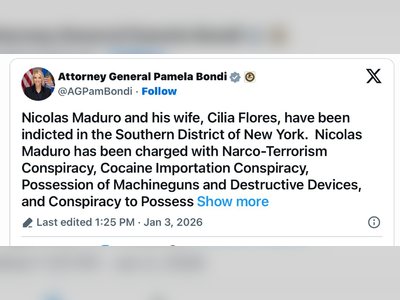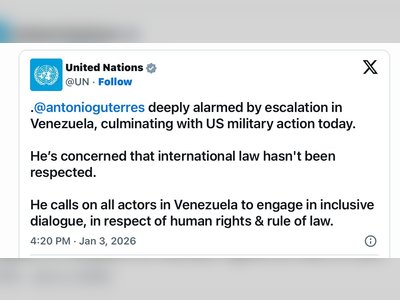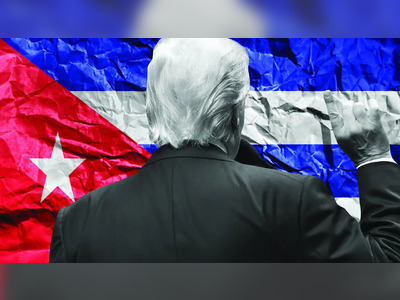Delhusa Gjon: Police Investigation Intensifies Amid Alleged Misconduct
Hungarian singer faces house search as authorities probe forgery accusations.
In an unfolding saga that has captured public attention, the prominent Hungarian musician Delhusa Gjon finds himself at the center of a police investigation that could lead to a house search.
The inquiry stems from allegations involving misuse of official documents to evade parking penalties.
The controversy began in December when Újbuda's deputy mayor, Kreitler-Sas Máté, took to Facebook to accuse the Artisjus award-winning singer of persistent illegal parking and inappropriate behavior.
Subsequently, a video surfaced displaying Gjon presenting a purported police ID in a bid to impersonate a law enforcement officer—a tactic allegedly employed to avoid fines.
The authenticity of the ID is central to the investigation.
Reports suggest the International Police Association (IPA) membership card shown by Gjon had expired, and he was not authorized to possess any authoritative documentation.
This led to suspicions of forgery or alteration of official documents, serious charges under Hungarian law, prompting an official inquiry.
In the recent weeks, developments have seen the police take statements from eyewitnesses, including public-space inspectors, and Kreitler-Sas Máté himself was interviewed to provide further details on the situation.
The deputy mayor noted, "There is potential for a house search of Delhusa Gjon’s residence, as the investigation seeks to determine whether the ID in question is a mere deceitful document or a full-fledged forgery.
Such a determination could widen the scope of the probe, possibly uncovering other illegal items in Gjon’s possession."
The stakes are high for Delhusa Gjon, as the investigation's outcome could further complicate his legal troubles.
Kreitler-Sas Máté has expressed hope that the proceedings might prompt a shift in the musician's conduct, toward more law-abiding behavior and humility.
"What he's achieved as an artist doesn't exempt him from following the law," Máté remarked.
As the inquiry unfolds, both the police and local officials seem committed to pursuing the matter thoroughly.
Máté asserted his readiness to engage in future confrontations, should the investigation require it, indicating his willingness to ensure the facts are presented clearly.
The proceedings underscore the increasing scrutiny public figures face in adhering to legal standards, setting a potential precedent for accountability among celebrities.
The outcome of this investigation remains a topic of keen interest not only to local fans and authorities but potentially to the broader European cultural landscape, underscoring the enduring debate about the responsibility of public figures.
The inquiry stems from allegations involving misuse of official documents to evade parking penalties.
The controversy began in December when Újbuda's deputy mayor, Kreitler-Sas Máté, took to Facebook to accuse the Artisjus award-winning singer of persistent illegal parking and inappropriate behavior.
Subsequently, a video surfaced displaying Gjon presenting a purported police ID in a bid to impersonate a law enforcement officer—a tactic allegedly employed to avoid fines.
The authenticity of the ID is central to the investigation.
Reports suggest the International Police Association (IPA) membership card shown by Gjon had expired, and he was not authorized to possess any authoritative documentation.
This led to suspicions of forgery or alteration of official documents, serious charges under Hungarian law, prompting an official inquiry.
In the recent weeks, developments have seen the police take statements from eyewitnesses, including public-space inspectors, and Kreitler-Sas Máté himself was interviewed to provide further details on the situation.
The deputy mayor noted, "There is potential for a house search of Delhusa Gjon’s residence, as the investigation seeks to determine whether the ID in question is a mere deceitful document or a full-fledged forgery.
Such a determination could widen the scope of the probe, possibly uncovering other illegal items in Gjon’s possession."
The stakes are high for Delhusa Gjon, as the investigation's outcome could further complicate his legal troubles.
Kreitler-Sas Máté has expressed hope that the proceedings might prompt a shift in the musician's conduct, toward more law-abiding behavior and humility.
"What he's achieved as an artist doesn't exempt him from following the law," Máté remarked.
As the inquiry unfolds, both the police and local officials seem committed to pursuing the matter thoroughly.
Máté asserted his readiness to engage in future confrontations, should the investigation require it, indicating his willingness to ensure the facts are presented clearly.
The proceedings underscore the increasing scrutiny public figures face in adhering to legal standards, setting a potential precedent for accountability among celebrities.
The outcome of this investigation remains a topic of keen interest not only to local fans and authorities but potentially to the broader European cultural landscape, underscoring the enduring debate about the responsibility of public figures.
AI Disclaimer: An advanced artificial intelligence (AI) system generated the content of this page on its own. This innovative technology conducts extensive research from a variety of reliable sources, performs rigorous fact-checking and verification, cleans up and balances biased or manipulated content, and presents a minimal factual summary that is just enough yet essential for you to function as an informed and educated citizen. Please keep in mind, however, that this system is an evolving technology, and as a result, the article may contain accidental inaccuracies or errors. We urge you to help us improve our site by reporting any inaccuracies you find using the "Contact Us" link at the bottom of this page. Your helpful feedback helps us improve our system and deliver more precise content. When you find an article of interest here, please look for the full and extensive coverage of this topic in traditional news sources, as they are written by professional journalists that we try to support, not replace. We appreciate your understanding and assistance.

